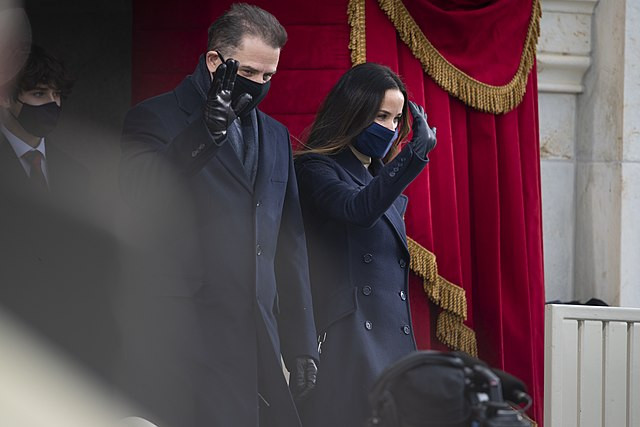In a Delaware courtroom on Tuesday, Hunter Biden, son of President Joe Biden, pleaded not guilty to three federal gun charges, further intensifying the political spotlight on the Biden family. The charges, which date back to a 2018 firearm purchase, allege that Biden made false statements on a federal form regarding his drug use.
The case centers on a firearm Hunter Biden acquired in October 2018. He is accused of falsely asserting on a federal form that he was neither using nor addicted to illegal drugs, despite his known struggles with crack cocaine addiction. The charges brought against him include making false statements on a Bureau of Alcohol, Tobacco, Firearms and Explosives (ATF) form, misleading the federally licensed gun dealer in Wilmington from whom he procured the firearm, and unlawfully possessing the gun while using or being addicted to controlled substances.
Hunter Biden's legal representation, led by attorney Abbe Lowell, has been vocal in asserting that the charges are politically motivated. Lowell stated that the case is a result of "political pressure from President Trump and his MAGA allies," accusing them of pushing the Justice Department to deviate from standard procedures in such cases.
The indictment follows a collapsed plea deal earlier this year. Initially, it seemed the matter would be resolved without charges. However, disagreements during a July court hearing over the specifics of the deal, particularly concerning immunity from other potential charges for Hunter Biden, led to its dissolution.
The White House had hoped the legal issues surrounding Hunter Biden would have been resolved earlier this year. However, the ongoing legal proceedings, combined with the recent indictment, have kept the matter in the public eye. This has been further exacerbated by House Republicans, who have initiated an impeachment inquiry into President Biden, focusing on his potential involvement with Hunter Biden's business dealings.
Lowell indicated that the defense might challenge the constitutionality of the gun provisions and is considering filing a motion to dismiss the case. He emphasized that several court rulings have questioned the constitutionality of the law in question.
As the case progresses, it is expected to remain a significant point of contention in political circles, with potential ramifications for the Biden administration's public image and the broader political climate.
Key Developments:
-
Hunter Biden is facing three felony counts related to his alleged illegal possession of a firearm. If convicted on all counts, he could face up to 25 years in prison, though maximum penalties are rarely imposed, especially for non-violent offenses involving first-time alleged offenders.
-
The charges include making false statements on a Bureau of Alcohol, Tobacco, Firearms and Explosives (ATF) form during the purchase of a gun, lying to the federally licensed gun dealer in Wilmington where he bought the firearm, and illegally possessing the gun while using or being addicted to drugs.
-
The case has drawn significant attention due to its political implications. Hunter Biden's attorney, Abbe Lowell, stated that the charges are "the result of political pressure from President Trump and his MAGA allies to force the Justice Department to ignore the law and deviate from its policies in cases like this one."
-
The indictment follows a collapsed plea deal earlier this year, which would have resolved the matter without charges. The deal fell apart during a contentious court hearing in July, with disagreements arising over whether the arrangement granted Hunter Biden immunity from other charges.
-
The White House had anticipated the legal drama surrounding Hunter Biden to conclude this summer. However, the failed plea deal and the subsequent indictment have kept the issue in the spotlight. House Republicans also recently launched an impeachment inquiry into President Biden in relation to Hunter Biden's business ventures.




